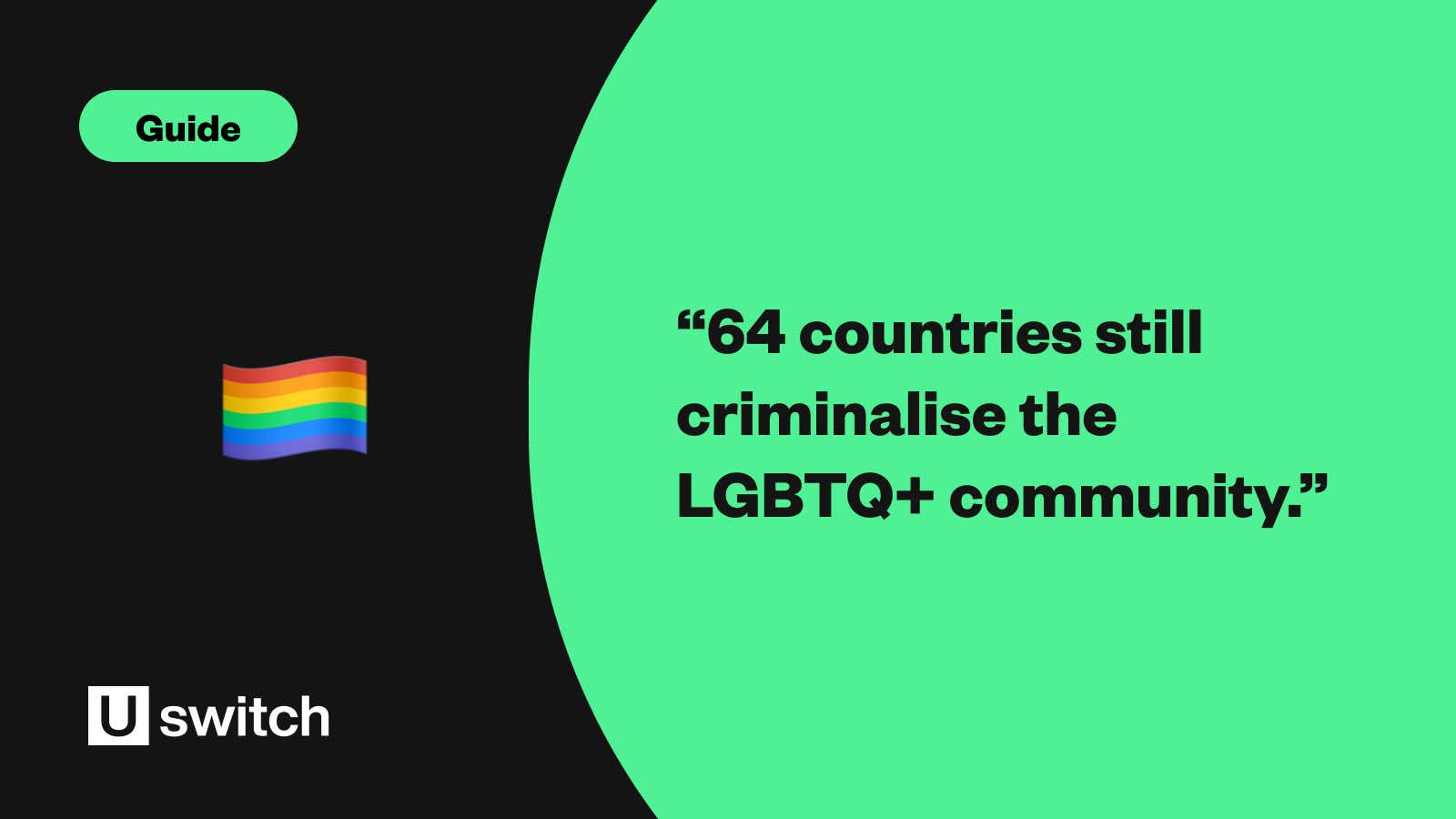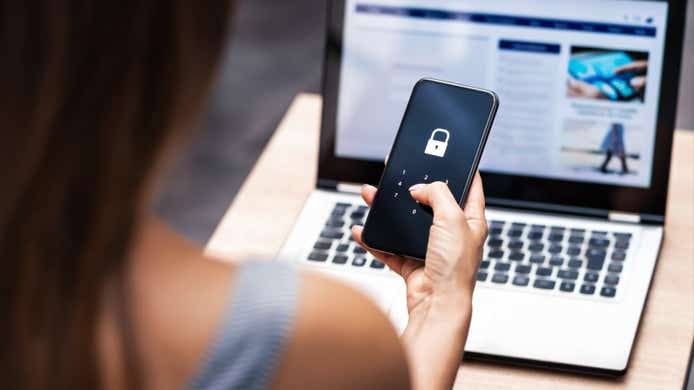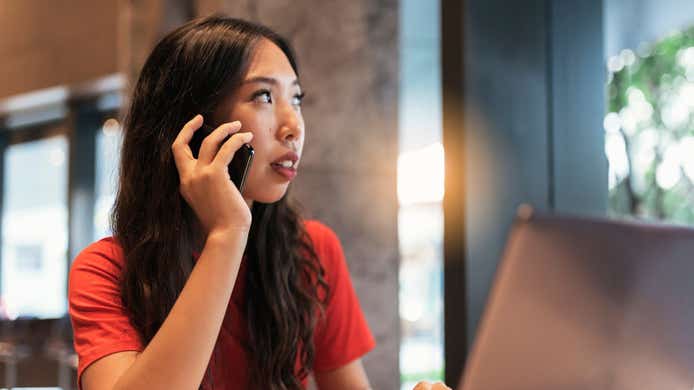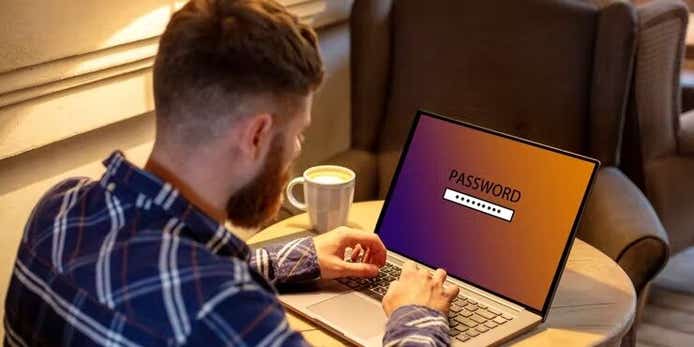Since the internet was first introduced, there have been forums and chat rooms and online communities where people could connect from all over the world. Those of us who are old enough to remember will recall there being a chat room for almost every topic, from Buffy the Vampire Slayer fanfic to chat rooms about your favourite sports teams.
And, most importantly for many people, LGBTQ+ chat rooms quickly began appearing. The internet offered members of the community a way to meet others from the safety and privacy of their homes, at a time when their safety in public spaces was not always assured.
The internet has come a long way since then, with fast and reliable broadband available to almost every household in the UK. This has allowed members of the LGBTQ+ community to stay connected and find support and information whenever they need it.
Internet censorship and LGBTQ+ discrimination around the world
These days, many of us take the internet for granted, along with the freedom of speech and access to information it provides us. However, this is not the case in every country, with 70 countries around the world placing legal restrictions on the LGBTQ+ community and even more limiting their access to information and support via the Internet.
Past research found that over half of LGBTQ+ people have experienced discrimination when travelling abroad, with the vast majority of that (72%) directed towards the trans community. What was surprising was discrimination was found in many countries that have laws in place to protect the LGBTQ+ community, including the United States, Spain and France, which appeared at the top of the list.
Three-quarters of the LGBTQ+ community revealed that they don’t feel safe travelling to certain countries. The top four countries people avoid the most due to concern over discrimination are the UAE, Turkey, China and South Africa. We also found that one in four people had experienced their internet access being blocked when travelling.
The following countries are just a sample of those that block access to LGBTQ+ content, either through search engines, websites or apps, such as dating apps, Instagram and Facebook.
Argentina
Australia
Austria
Belgium
Brazil
Canada
China
Croatia
Cuba
Cyprus
Denmark
France
Germany
Greece
Iceland
India
Ireland
Italy
Jamaica
Japan
Mexico
Morocco
Netherlands
New Zealand
Norway
Portugal
South Africa
Spain
Sweden
Switzerland
Thailand
Turkey
United States
And even the UK
How censored internet is dangerous to the LGBTQ+ community
A surprising number of countries censor their internet in some way, limiting access to social media and news and restricting specific types of content. Internet censorship is now considered a human rights violation since the UN Human Rights Council (HRC) stated in 2018 that “the same rights that people have offline must also be protected online, in particular freedom of expression.”
Controlling access to information and restricting the posting of certain types of content is, therefore, an infringement of free speech and could have a significantly detrimental impact on a community. It’s important to consider that internet censorship is often implemented alongside other forms of restrictions and oppression.
Controlling the information available to a population – especially an oppressed minority group – is only likely to increase the spread of misinformation and hostility towards that group.
How to stay safe online while travelling
Even though the list above is far longer than we’d like – in fact, we’d like it to not exist at all – this doesn’t mean that you couldn’t or shouldn’t still travel to some of these locations. Having grown up in the Middle East as a member of the LGBTQ+ community myself, there’s a big difference between what the laws say and what it’s like to live or travel there.
There are some countries that, while they don’t explicitly outlaw LGBTQ+ individuals, have seriously homophobic attitudes and policies in place. That being said, there’s no harm in being prepared and doing everything to keep yourself and your partner safe when travelling.
1. Search online for LGBTQ+-owned travel operators
The easiest way to make sure you’ll be safe when travelling is to use LGBTQ+-owned travel companies and those with strong anti-discrimination policies when planning your trip. Organisations like the International L.G.B.T.Q.+ Travel Association are a good place to look for LGBTQ+-friendly tour operators, hotels and businesses.
2. Search for LGBTQ-friendly accommodation
Use services like Misterb&B and Purple Roofs to search for accommodation for LGBTQ+ travellers. If you’re using other services like Airbnb or Booking.com, look for any LGBTQ+-friendly declarations. While these may not be as outwardly welcoming as queer-owned or LGBTQ+ services, they at least give you an idea of the type of visitors and if the area, in general, is open to claiming its support of LGBTQ+ guests.
3. Res the laws of the countries you’re visiting
Do your research before you book your trip. Know what the laws and restrictions are for each location you’re planning to visit. This is especially important for Trans travellers when it comes to the legal documentation that specific countries will accept.
Resources like the International Lesbian, Gay, Bisexual, Trans and Intersex Association’s world map of sexual orientation laws can help you quickly check if you’re likely to come across any anti-LGBTQ+ laws.
Do this research beforehand and store it offline on your devices. As we’ve seen, you might not be able to access websites with LGBTQ+ terms once you arrive.
4. Save copies of all your paperwork offline
This is a good tip for any traveller but can be especially important if you ever find yourself in a tense and stressful situation. Rather than getting flustered and being unable to get online to pull up your information, save a copy of everything you’ll need offline, and even carry physical copies to be safe.
5. Carry copies of your identification (physical and digital)
Like the rest of your paperwork, we’d recommend having all your identification documents saved offline in case you need to access them. It’s also a good idea to share all your documents with someone else in case you lose your phone and luggage. Before starting your journey, make sure that your ID matches your gender identity. ID is vital for all travellers but can be especially important for trans, genderqueer, or gender nonconforming travellers. Carry physical copies as well as digital ones just to be on the safe side.
6. Get a VPN on your devices
Some countries stipulate that the use of VPNs is illegal. However, for those that don’t, a VPN is the best way to keep your identity and personal information safe while travelling. Depending on the country you’re visiting and the restrictions they have in place, a VPN might be to give you access to the same information and platforms that you have at home.
However, don’t rely on this to be the case in countries with rigid censorship protocols, as you could still find yourself without access to important information. So do whatever research you can before travelling and save it offline.
7. Always view the government’s official tourism website
If the local tourism board has a dedicated section for LGBTQ+ travellers, this is a great place to start. You’ll usually find information about events, businesses or hotspots.
8. Search for LGBTQ+ events
A quick way to check how safe and welcoming a location will be for LGBTQ+ travellers is to search for news or listings of any LGBTQ+ events. If a city or town has its own Pride celebration then at least some of the community are supportive and welcoming. Again, this doesn’t mean you should travel with abandon. Many Pride events are still forms of protest, so look into other events held throughout the year.
9. Connect with locals
Depending on the internet restrictions in the country you’re visiting, this may or may not be an option while you’re travelling. If social media and dating apps aren’t blocked, they’re a great way to find out more about what’s safe and what’s not while visiting. Official rules may say one thing, but local experience could give you another point of view, such as which areas are safest and what’s culturally appropriate.





